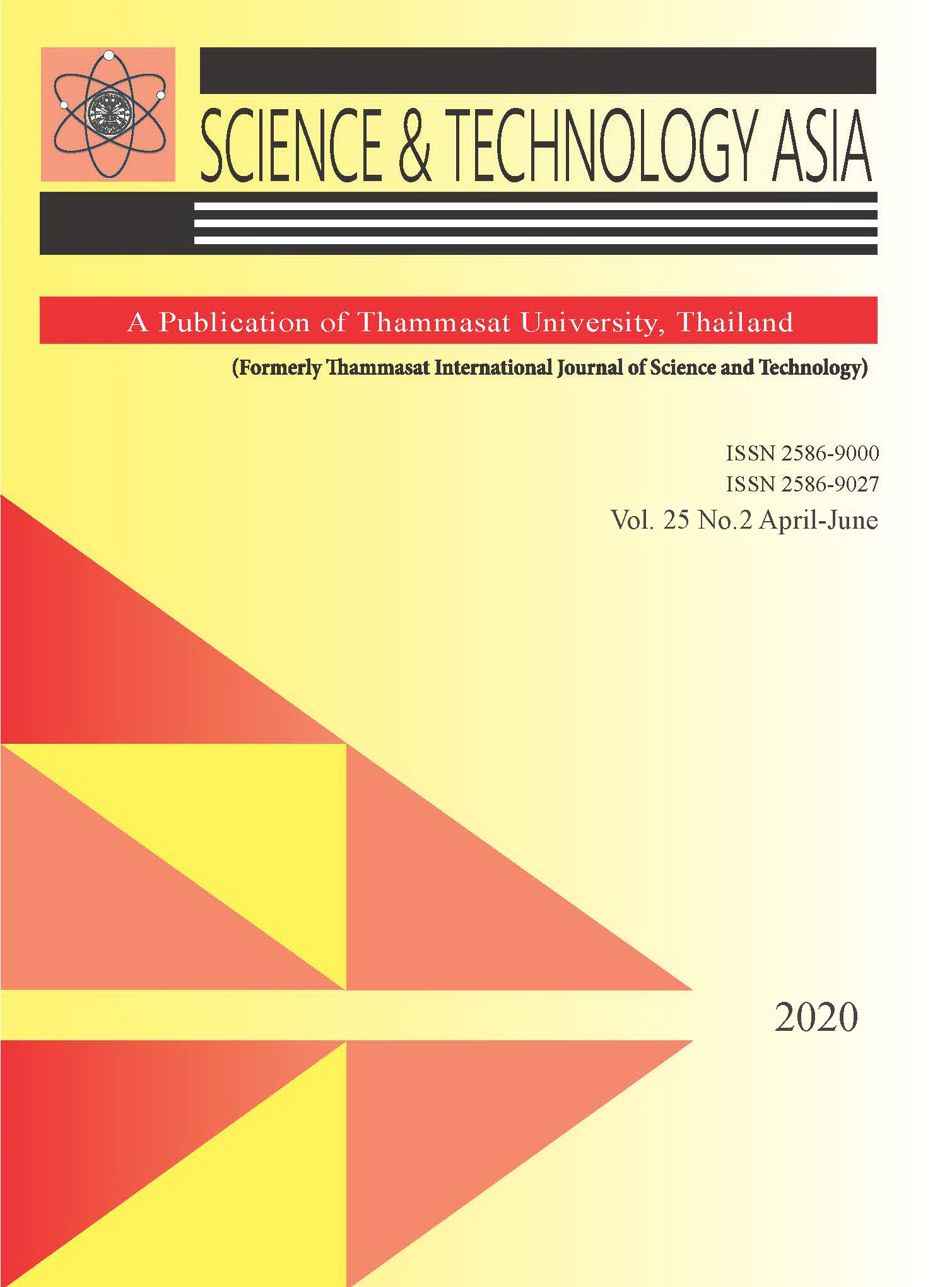Enhancing Germination and Seedling Vigor of Upland Rice Seed under Salinity and Water Stresses by Osmopriming
Main Article Content
Abstract
The moisture and salinity stress are major constraints of rice production around the world. The combination of low quality native upland rice seeds and abiotic stresses can result in major crop losses and become a major constraint in growing upland rice in both upland and lowland areas. Thus, the purpose of this study was to evaluate the benefit of different seed priming [hydroprimed (control), 0.05% of magnesium chloride (MgCl2), 2% of potassium chloride (KCl) and 1.5% of potassium nitrate (KNO3)] on seed emergence and seedling vigor of upland rice seeds under both normal and stressed conditions. For abiotic stresses, seeds were grown under drought condition in four different soil moisture contents (5, 27, 52 and 86% soil moisture) as well as different salinity levels (0, 5, 10, 15 and 20 dS/m). The result showed that seeds primed with 0.05% MgCl2 provided high efficiency in enhancing many traits (the mean emergence time (MET), emergence index (EI), vigor index (VI), and shoot and root, either fresh weight or dry weight). Moreover, 0.05% MgCl2 was able to accelerate seed emergence time in both abiotic stresses. The METs of hydroprimed (control) under normal, mild drought stress and severe salinity stress were 1.08, 4.70 and 4.70 days while METs of seed primed with MgCl2 were 0.53, 3.40 and 1.63 days, respectively. The data showed that osmopriming with 0.05% MgCl2 is an efficient method that helps seeds to overcome abiotic stress conditions by enhancing seed emergence and seedling growth of upland rice in both upland and lowland areas.


